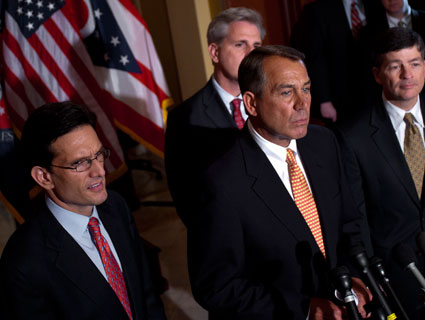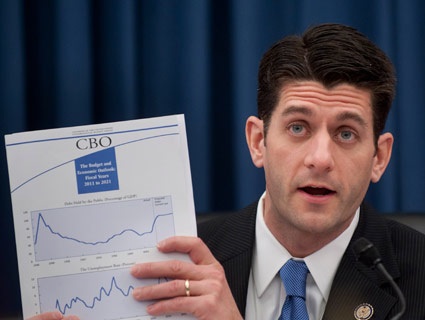America spends too much money on health care—this much Republicans and Democrats alike can agree on. Where they differ is on the best way to curb costs and unnecessary, inefficient care. In other words, somebody’s got to say “no” to unnecessary spending, and that’s not something that most Americans are going to want to hear. Democrats have been more willing to face this reality than their Republican counterparts. When the Dems introduced their own cost-controls in the Affordable Care Act—including research that would compare the effectiveness of different treatments, advice for end-of-life-counseling, and an independent board that would set payments for Medicare—the GOP attacked them for creating “death panels” and a Soviet-era bureaucracy to “ration” care.
That said, a growing number of conservatives have begun to admit that some form of rationing is necessary to prevent America’s health care system—and the economy as a whole—from self-destructing. “There’s no way out but rationing—either by making seniors pay much more for their healthcare or denying them much more than basic care,” writes Andrew Sullivan. Some Republicans are now casting Rep. Paul Ryan’s budget plan as a form of “self-rationing” that would place such decisions in the hands of private citizens, rather than cold-hearted bureaucrats. “Rationing is going to go on within the Medicare system. It’s a fact of life” given financial constraints, the Cato Institute’s Michael Tanner tells Politico. “The question’s going to be, is that decision going to be made by government and imposed top down under the current system? Ryan wants to shift that responsibility to individuals and from the bottom up.”
But far from creating a nation of empowered individuals free from government constraints, the Ryan plan will simply shift that authority to the private insurance industry. As NPR reports, the Congressional Budget Office says that insurers would have far greater leeway to do things like “limiting benefits, changing co-payment amounts, managing how patients use services” under RyanCare, free from ObamaCare’s consumer protections that prohibit exploitative practices. What’s more, private insurance is less cost-effective than government-run health care, forcing seniors to pay more and get less.
So the elderly may be forced to use less health care under Ryan’s plan, and government spending on Medicare will go down. But rather than using scientific research and the consensus of experts to make more cost-effective Medicare choices, the Republicans will take a hatchet to Medicare costs and then hand the weapon over to private insurances. Rationing must happen, yes—but it can be done far more intelligently.










